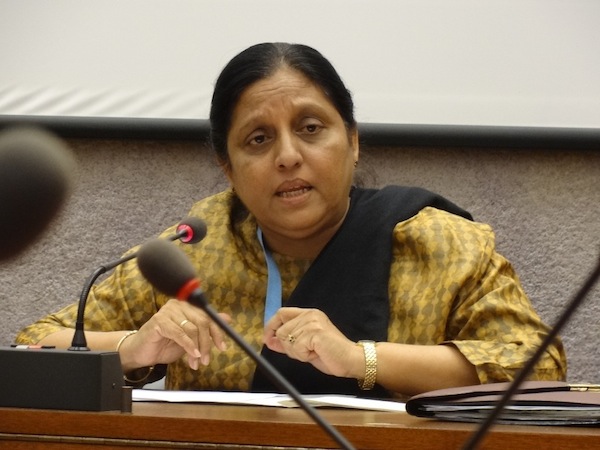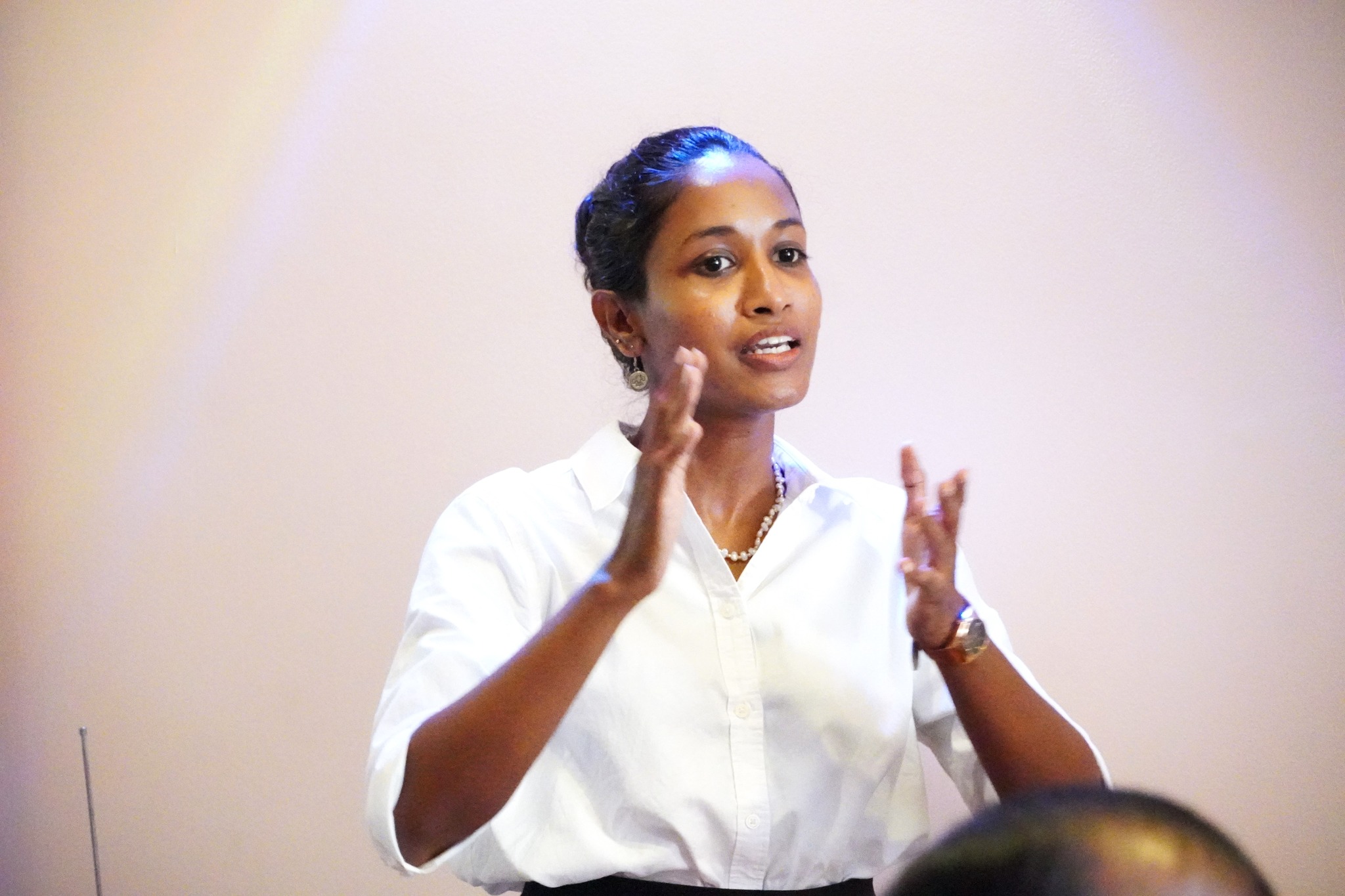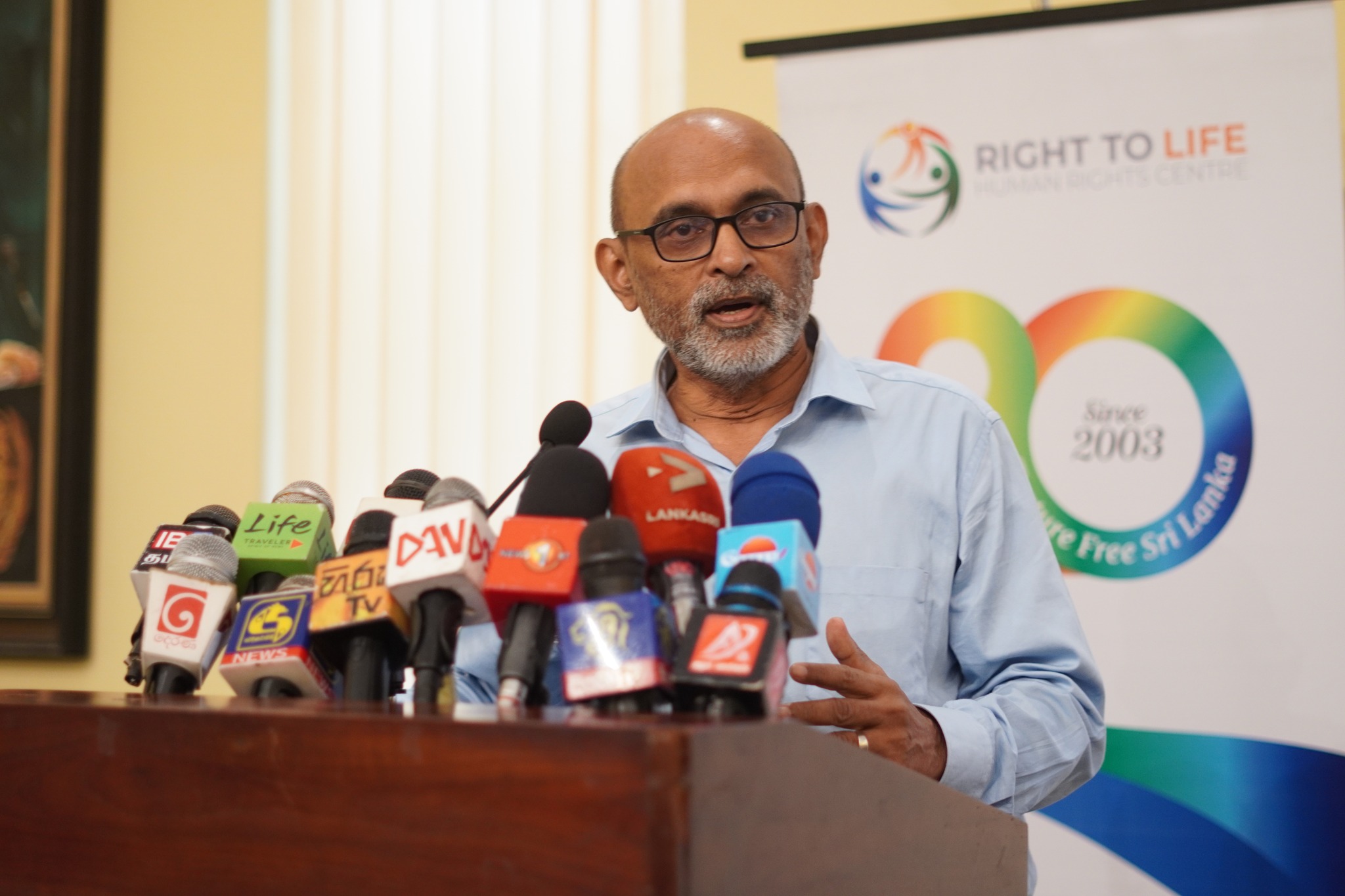The ‘Coastal’ or ‘Muhudu’ Veddas are an indigenous community whose livelihood depends on fishing, collecting honey, and small-scale agricultural activities. Today, most members of the Muhudu Vedda tribe, who now live in a few limited areas along the eastern coast, have intermingled with various ethnic groups. Those residing in and around the city of Batticaloa, in particular, live closely with the Tamil population. Some have adopted modern Tamil lifestyles, including contemporary clothing and using Tamil as their mother tongue.
Approximately 50 Muhudu Vedda families live in the village of Santhoshapuram near the Sampur area, close to the Trincomalee harbor. They have been displaced several times but have repeatedly returned to their ancestral lands. They have opposed the construction of both a coal power plant and wind power plants in Sampur. Their primary concern is the loss of forests necessary for their traditional activities like cutting wood, harvesting bees’ honey, and hunting.
In 2006, during the Mawilaru humanitarian operation, the war in the area led to the displacement of residents from several villages, including Santhoshapuram. When they returned in 2009, they discovered that 200 acres of land in the Sampur area, including Santhoshapuram, had been designated as a high-security zone by the government for a coal power project. This included their homes, Kovils (temples), tanks, and paddy fields, which were critical for their traditional livelihoods. The Sampur Munisami Kovil, an ancient temple where the Muhudu Veddas worship Munisamy Deity as the guardian spirit of the forest, is also located in the high security area.
Due to strong opposition from the Tamil community, the proposed coal power plant was canceled during the tenure of the Good Governance Government, and the lands in Sampur were released. However, some areas of land remain under high-security zone restrictions, inaccessible to the public. Reports suggest that these lands were later leased to an Indian company for a solar power project.
According to the people of this area, the government took over these 200 acres of land without any consultation during the war. To date, no justice has been served for those who lost their land. While alternative lands have been provided in similar cases, those living in Sampur have been waiting for 15 years without any resolution to reclaim their lands.
The Muhudu Vedda community is already a marginalized group that faced significant neglect during the Sri Lankan Civil War. Since the focus of the conflict was primarily on the larger ethnic tensions between the Sinhala and Tamil communities, the needs of this community were largely ignored by both the government and the insurgents.
The disruption of their traditional lifestyles has gradually eroded their cultural identity. Many Muhudu Vedda people, forced to live in areas dominated by Tamil or Sinhala populations, have had to adopt the languages, customs, and practices of these communities. This has impacted their heritage and diluted their unique cultural traditions.
Like many other civilians, the Muhudu Vedda community also experienced violence and insecurity during the war. They were caught in the conflict, and their villages were attacked. The war caused significant turmoil within the Muhudu Vedda population. In the post-war period, they continue to struggle for the return of their lands and the preservation of their cultural identity. However, the lingering impacts of the conflict pose ongoing threats to their existence.


